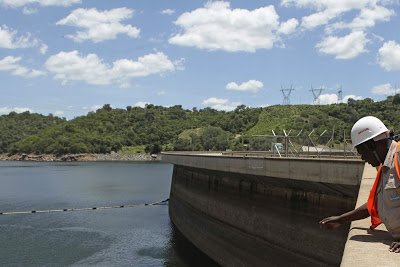The Director-General, Energy Commission of Nigeria (ECN), Prof. Jidare Bala, has said the use of hydropower through dams and rivers could play an active role in the current energy transition programme of the Federal Government.
Bala said this in Abuja on Monday at the opening session of the two-day 2022 Annual conference/Annual General Meeting of Hydropower professionals.
The programme had the theme: “Nigeria’s Energy Transition and Inclusive Growth through Hydropower Development.’’
It was organised by Nigeria Hydropower Professionals Association (NHPA), in collaboration with National Water Resources Institute, Kaduna.
Bala said that ECN was working to ensure that the mix of energy resources in the Nigerian energy sector, hydropower in electricity generation was given priority.
He said that the commission would work with the National Energy Policy (NEP) and with the National Energy Master Plan (NEMP).
He said NEMP was expected to provide a set of strategies, saying the commission had developed monitoring and evaluation strategies to ensure early corrective action on set targets within determined timelines.
Bala said that the Federal Government intended to pursue the Energy Master Plan to derive the maximum benefits which could be obtained by planning ahead.
The D-G, however, expressed confidence that the conference would engender transfer of technical knowhow, through experience sharing among participants, and help to promote the adoption of efficient technologies for power generation.
The Minister of Power, Mr Abubakar Aliyu, stated that Nigeria was well endowed with primary energy resources in both renewable and non-renewable potentials.
This, he noted, could be a plausible solution in addressing existing power shortage in the country.
He said that the country was well placed with resources that could promote Federal Government’s drive to increase electricity production to 30,000 MW by 2030 and beyond.
According to the minister, Nigeria’s main energy carriers are biomass 81.25 per cent; natural gas 8.2 per cent; petroleum products 5.3 per cent; crude oil 4.8 per cent and hydropower potential is 0.4 per cent which are equivalent to 14,000 MW.
Aliyu said that the Nigeria power system was characterised by a huge gap between supply and demand, adding that the current power demand was estimated at 19,798MW.
He said that the country had some ambitious targets towards achieving energy security, part of which included achieving 30,000MW, including all energy mix, access to electricity for all.
He said others were a 30 per cent share of renewable energy by the year 2030 and a net zero emission target by 2060.
He said that in recent times, the government was embarking on several hydropower projects to harness the country’s hydro resources, adding that some of these projects were at various levels of development.
Aliyu added that the conference would give professionals in the energy sector strategies to develop the sector.
The pioneer National Vice President 2, NHPA, Prof Adeniyi Olayanju, decried the ever increasing demand and meagre supply of energy, saying this was a great challenge to the country’s development.
According to him, the situation is becoming critical with the increase in population, saying it was not balanced with available energy development programmes.
“The incessant power generation failure has grossly affected the economy, seriously slowing down development in rural and sub-rural settlements, with present energy policy mainly benefiting urban dwellers.
“Globally, energy projections stipulate that between 2002 and 2025, global energy needs may rise by over 34 per cent, with that of developing nations doubling this percentage.
“A robust solution must be found to end the nation’s energy crises,’’ Olayanju said.
Chairman, Board of Trustees, NHPA, Prof. Bolaji Sule, called on professional hydropower engineers and all stakeholders in the energy sector to partner with NHPA to address the nation’s energy challenges.
According to him, the first and paramount role of hydropower professional engineers is to ensure sustainable energy development in Nigeria.




